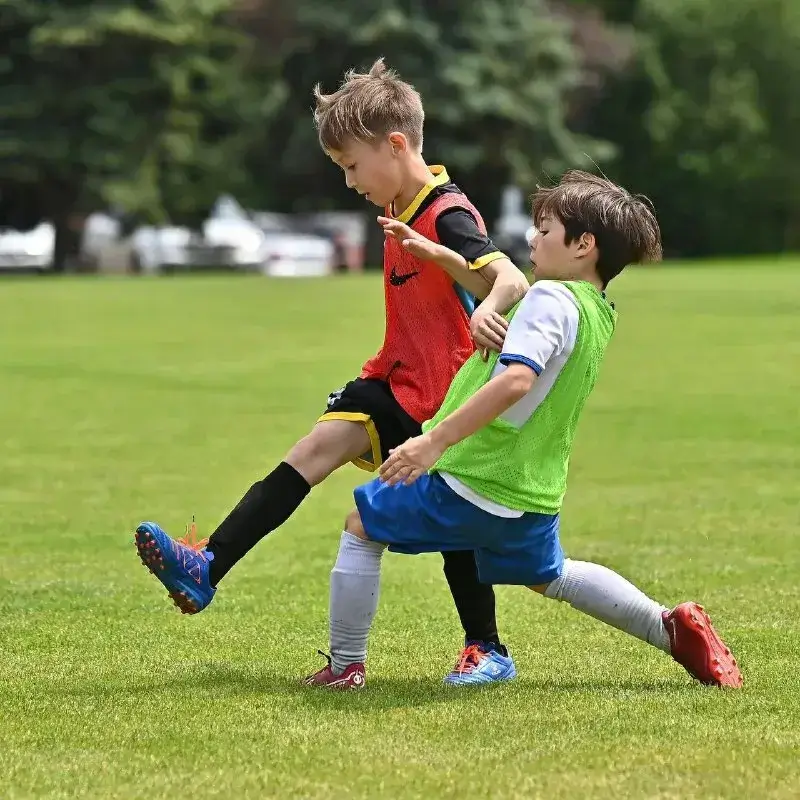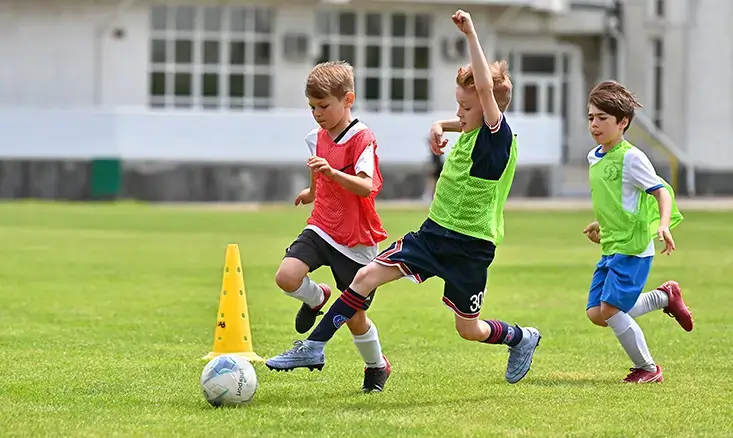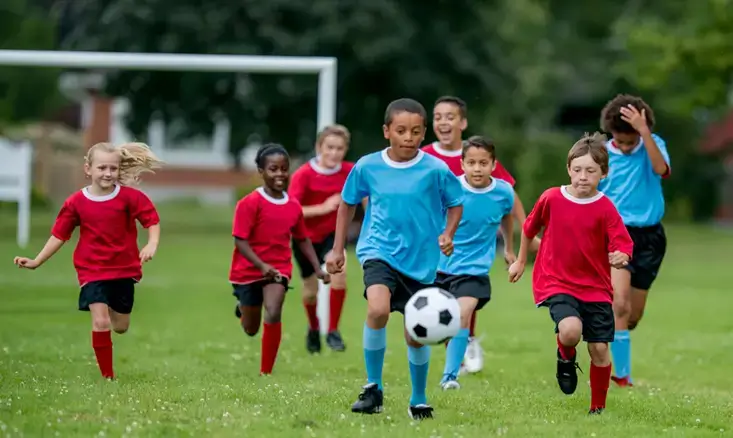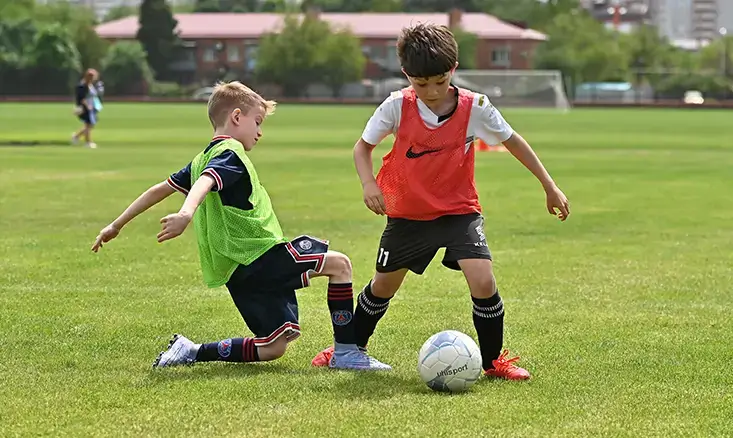A Comprehensive Guide to Youth Recreational Soccer

CRFC BLOGS
LATEST BLOGS & NEWSLETTERS
A Comprehensive Guide to Youth Recreational Soccer
Youth recreational soccer is one of the best ways to introduce children to the joys of sports. Unlike competitive leagues, these programs emphasize fun and skill-building over winning. They create an environment where kids can learn the basics of soccer, make new friends, and develop a lifelong love for the game.
Whether through outdoor recreational youth soccer games or structured recreational youth soccer programs, children of all skill levels and backgrounds can benefit from this enriching experience.
Key Features of Youth Recreational Soccer
Emphasis on Participation and Enjoyment
The foundation of youth recreational soccer is participation. Every child is encouraged to play and enjoy the game, making it a non-competitive space where everyone feels included.-
Equal Playtime
Unlike competitive leagues, where only the best players might see significant action, recreational youth soccer programs ensure that every child gets equal playtime. This approach develops confidence and keeps children motivated to continue playing.
-
Fun-Focused Environment
The primary goal of these programs is to build a love for the game. Children can explore their abilities without the pressure of winning, making soccer an enjoyable activity rather than a high-stress competition.
-
Supportive Atmosphere
Coaches, parents, and peers work together to create a positive environment where kids can thrive.

Foundational Skill Development
Youth recreational soccer is not just about playing games—it’s also a platform for learning the basics of soccer in a relaxed and supportive setting.
Core Skills
Players are introduced to fundamental skills such as dribbling, passing, and shooting. These are taught through fun and interactive drills that keep children engaged.
Understanding the Game
Learning the youth recreational soccer rules is an integral part of these programs. Simplified rules ensure that even the youngest participants can understand and enjoy the game.
Age-Appropriate Training
Recreational soccer programs adapt their training methods to suit the age and skill level of participants. For instance, younger children might focus on ball control and basic coordination, while older players might explore simple tactics and teamwork.
This approach provides children with a strong foundation to build upon, especially if they choose to pursue competitive soccer or participate in summer soccer camps.

Inclusive and Welcoming Atmosphere
-
Accessibility
Recreational youth soccer programs are designed to accommodate players of all skill levels. Whether a child is stepping onto the field for the first time or has some prior experience, they are welcomed with open arms.
-
Diversity
Teams often have children from diverse backgrounds, developing mutual respect and understanding.
-
Confidence Building
By emphasizing participation and personal growth, these programs help children develop confidence on and off the field.
Adaptable Game Structures
Youth recreational soccer games are structured to maximize enjoyment and engagement for young players.-
Simplified Rules
Youth recreational soccer rules are designed to be easy to understand and implement. This ensures that children can focus on having fun without worrying about complex regulations.
-
Smaller Teams and Fields
Recreational soccer often uses small-sided games with fewer players on each team. This allows for more touches on the ball, increased involvement in the action, and faster learning.
-
Shorter Games
Matches are typically shorter than in competitive leagues, making them less demanding and more suited to young children’s attention spans and energy levels.

Positive Coaching and Support
-
Volunteer Coaches
Many coaches are parent volunteers or community members passionate about the game and helping children succeed.
-
Encouragement Over Criticism
Recreational soccer places a strong emphasis on positive reinforcement. Coaches encourage effort and improvement rather than focusing on mistakes.
-
Teaching Life Skills
Beyond soccer, coaches also teach important life skills such as teamwork, discipline, and sportsmanship.
Community Engagement and Bonding
Youth recreational soccer programs are about more than just soccer—they’re about building a sense of community.-
Bringing Families Together
Games and events often become community gatherings where families connect and support each other.
-
Opportunities to Volunteer
Parents can contribute as coaches, assistants, or organizers, creating a strong sense of ownership and pride in the program.
-
Lasting Friendships
Both children and adults build lasting relationships through their involvement in the program, making it a rewarding experience for everyone.
Benefits Beyond Soccer
The advantages of youth recreational soccer go far beyond the game itself.-
Physical Health
Regular outdoor recreational youth soccer participation helps children improve their fitness, coordination, and overall health.
-
Mental Wellbeing
A positive and encouraging environment helps reduce stress, boost confidence, and foster resilience.
-
Social Skills
Playing in a team teaches valuable communication and collaboration skills, leadership, and problem-solving abilities.
Conclusion
The flexible structure, positive coaching, and strong sense of community make recreational youth soccer an unforgettable experience. Whether your child is just starting or looking for a non-competitive way to stay active, outdoor recreational youth soccer is the perfect opportunity.
FAQs
What is youth recreational soccer?
Youth recreational soccer is a non-competitive program designed to introduce kids to soccer in a fun and supportive environment. It focuses on learning basic skills, teamwork, and enjoying the game rather than winning.
How is recreational soccer different from competitive soccer?
Recreational soccer emphasizes participation, equal playtime, and skill development. Competitive soccer, on the other hand, prioritizes winning, advanced skills, and may involve tryouts and stricter competition.
What age groups can join youth recreational soccer?
Most programs cater to kids as young as 4 years old up to their teenage years. Training and game structures are adjusted to suit the age and skill level of the participants.
Do kids need prior experience to join recreational soccer?
No prior experience is needed! Youth recreational soccer welcomes players of all skill levels, making it an excellent option for beginners and those exploring the sport for the first time.
What are the benefits of youth recreational soccer?
Children gain physical fitness, social skills, and self-confidence while learning teamwork and sportsmanship. It also develops a love for soccer in a low-pressure, enjoyable environment.

Did you find this useful?


